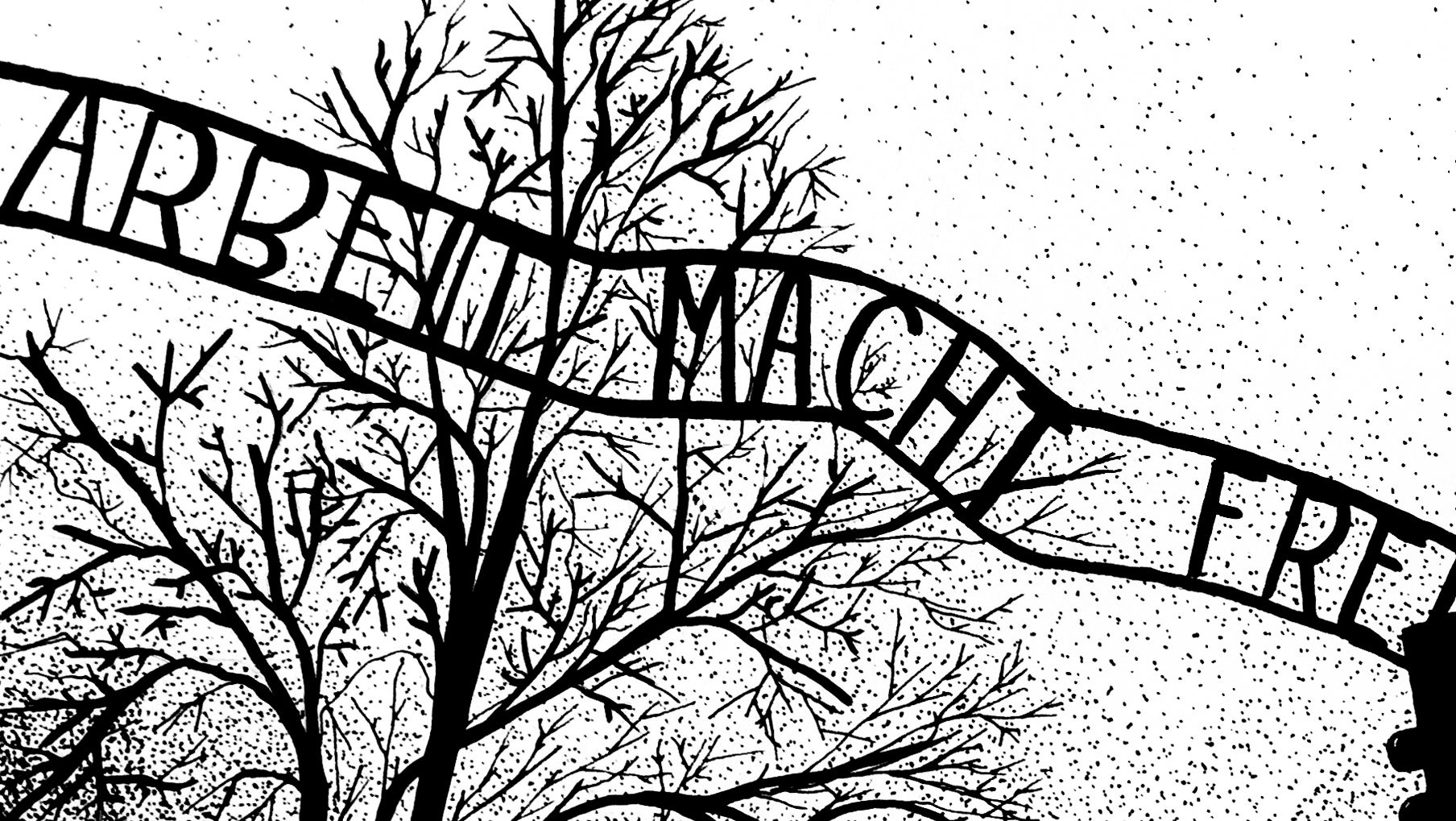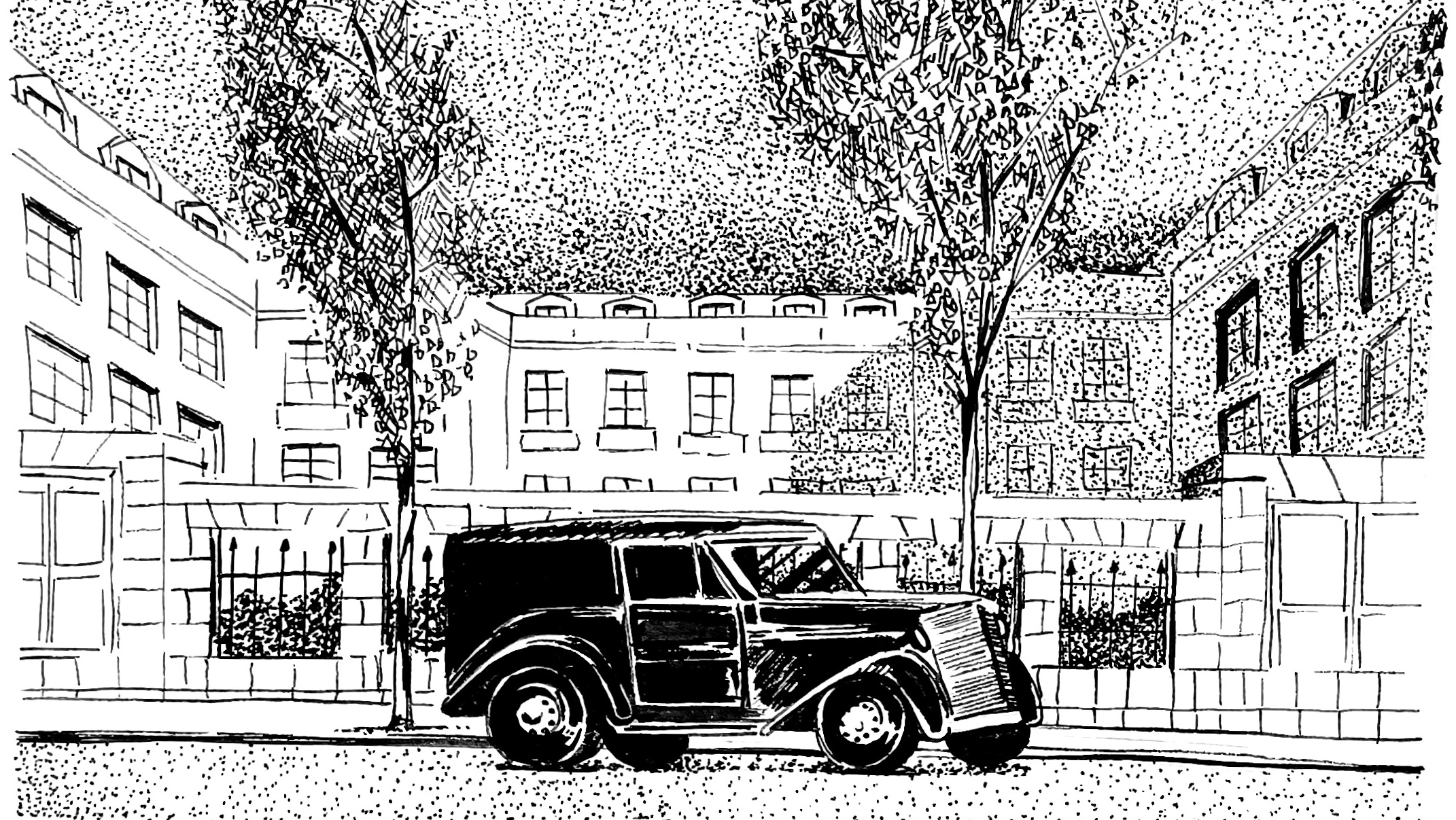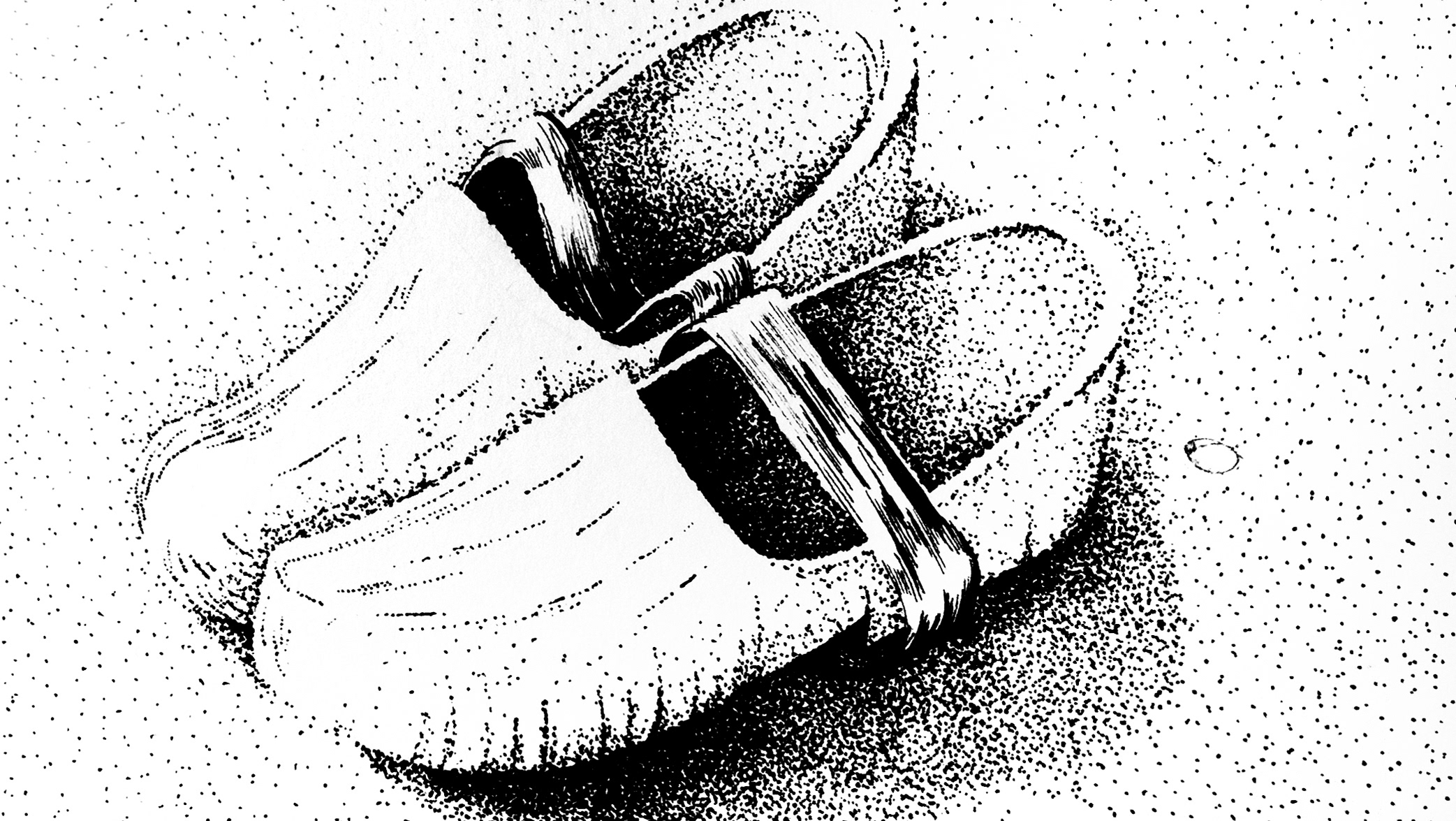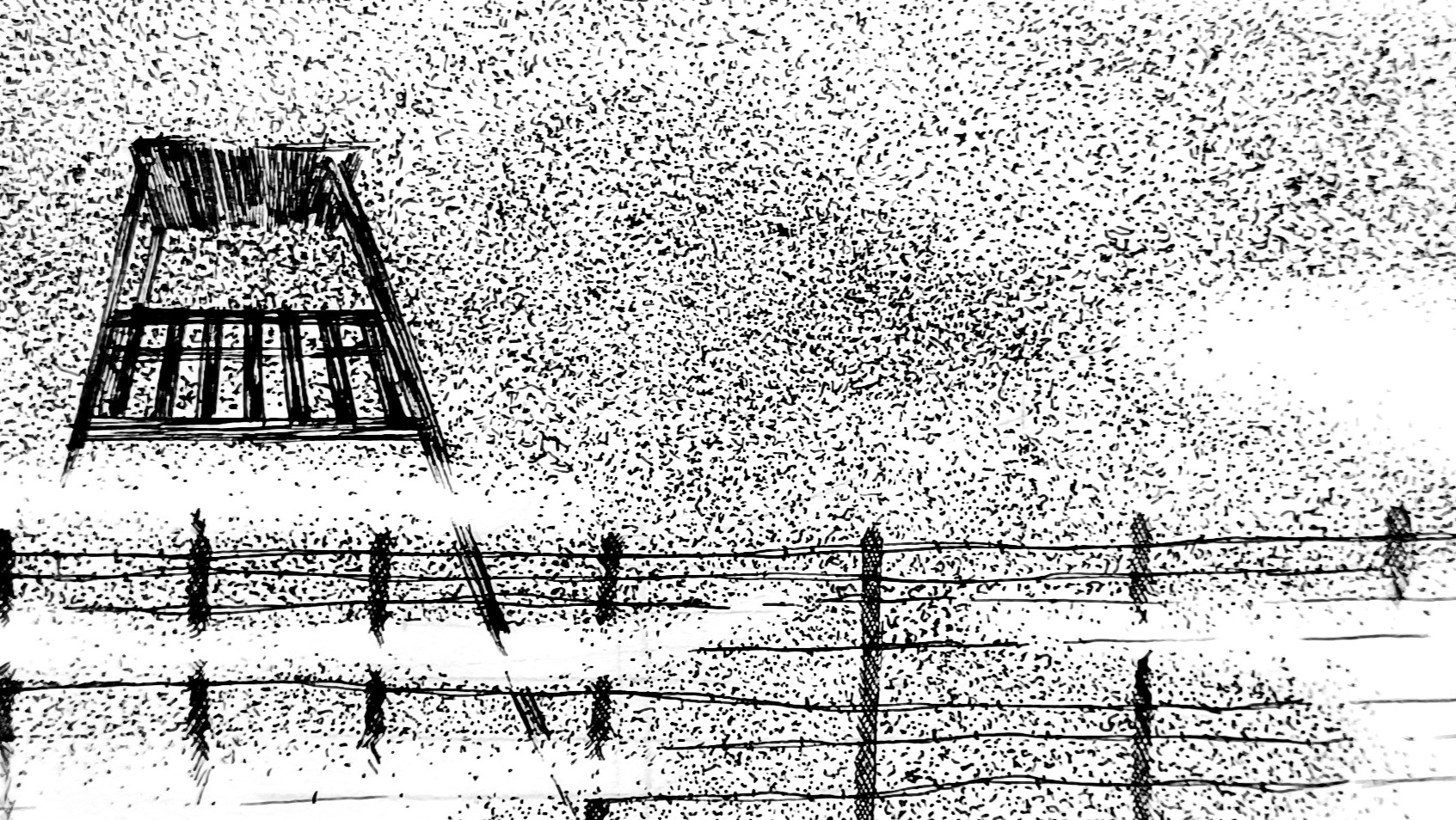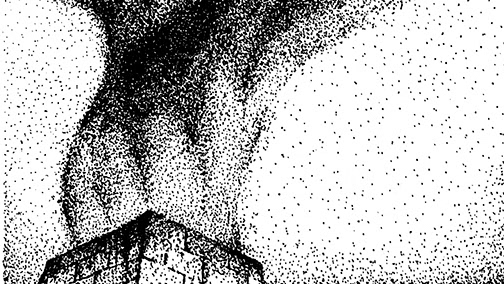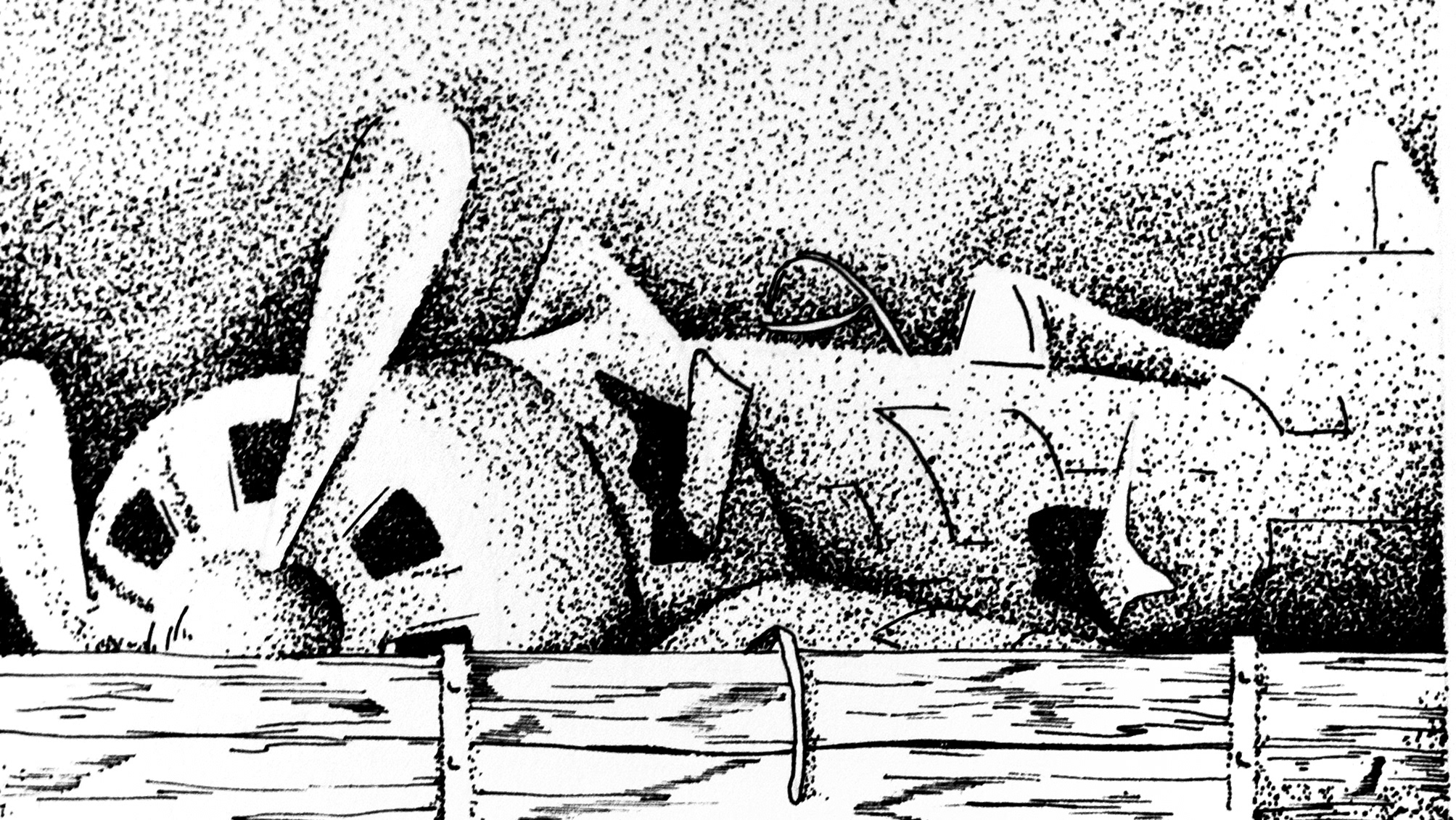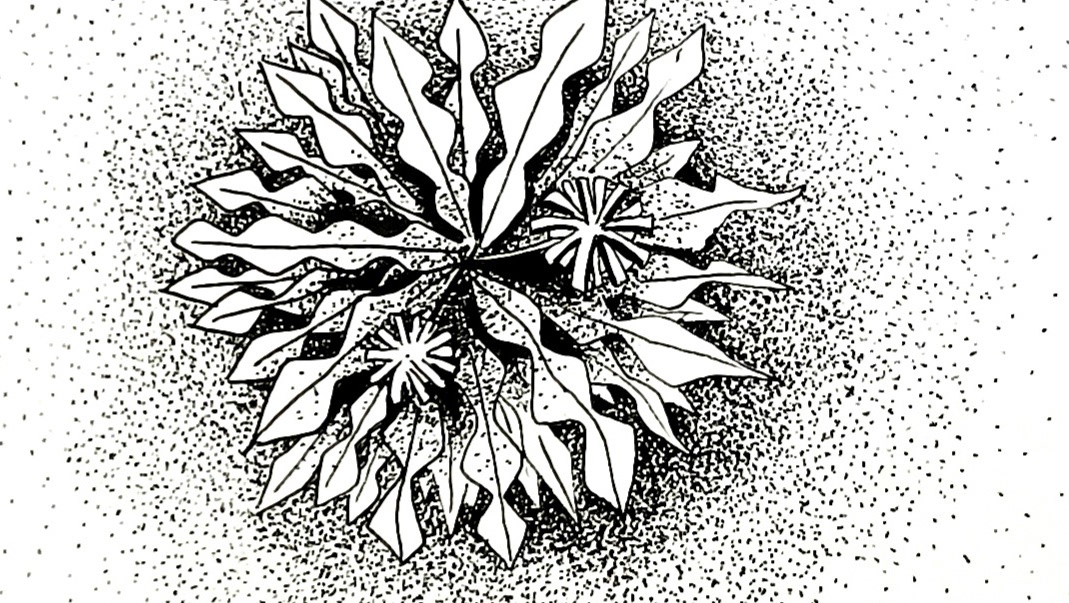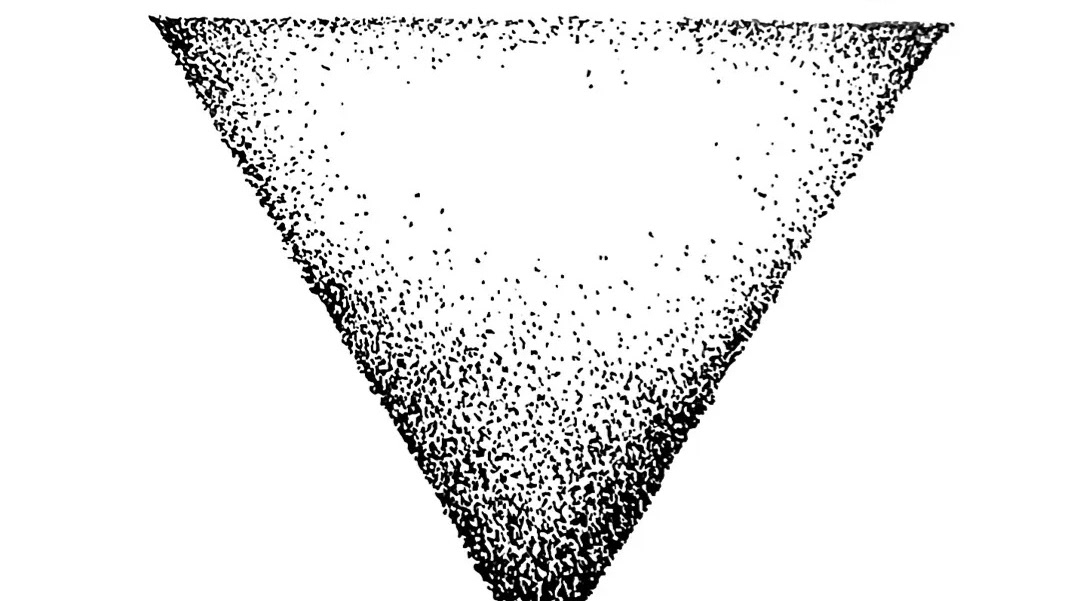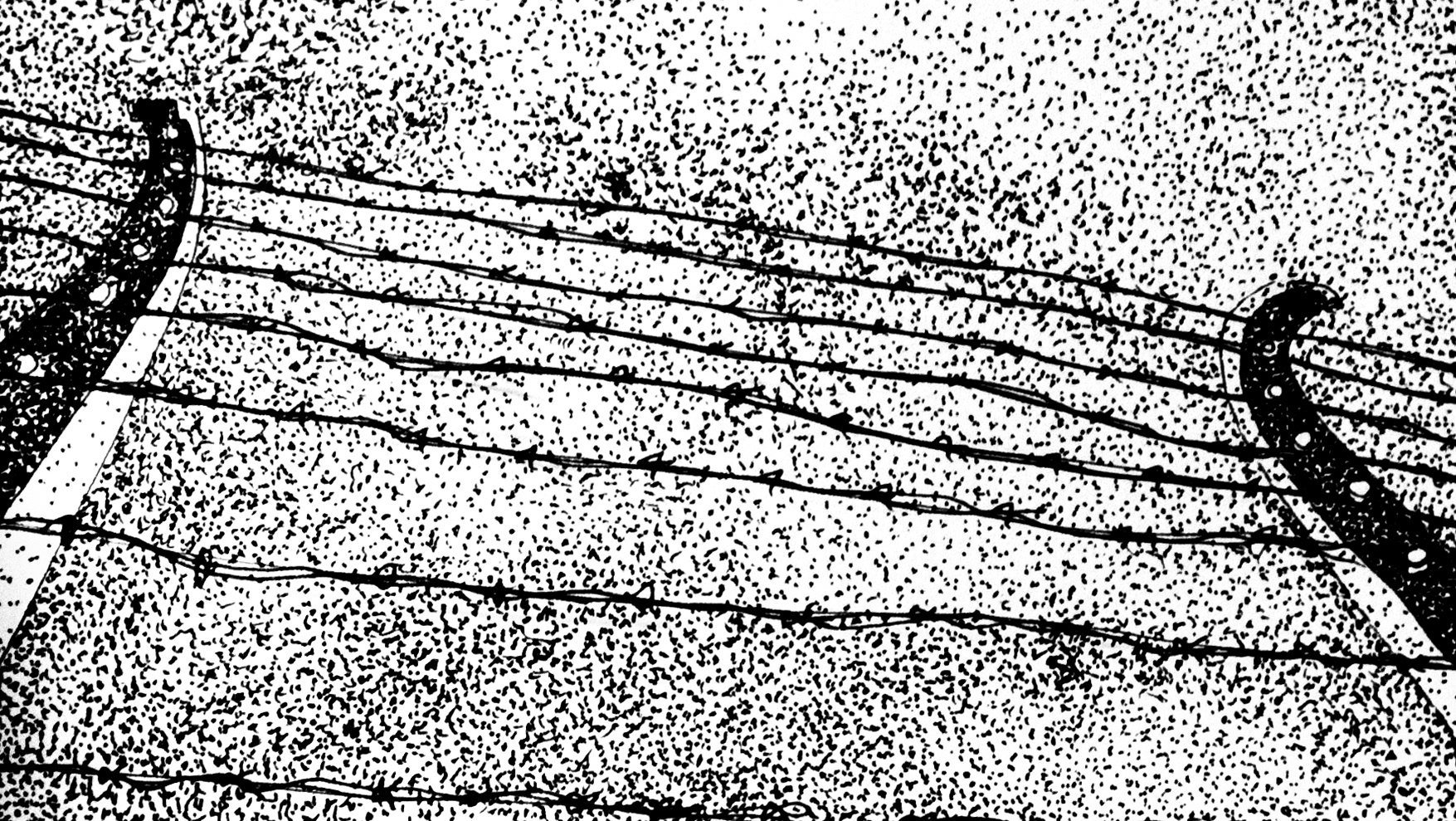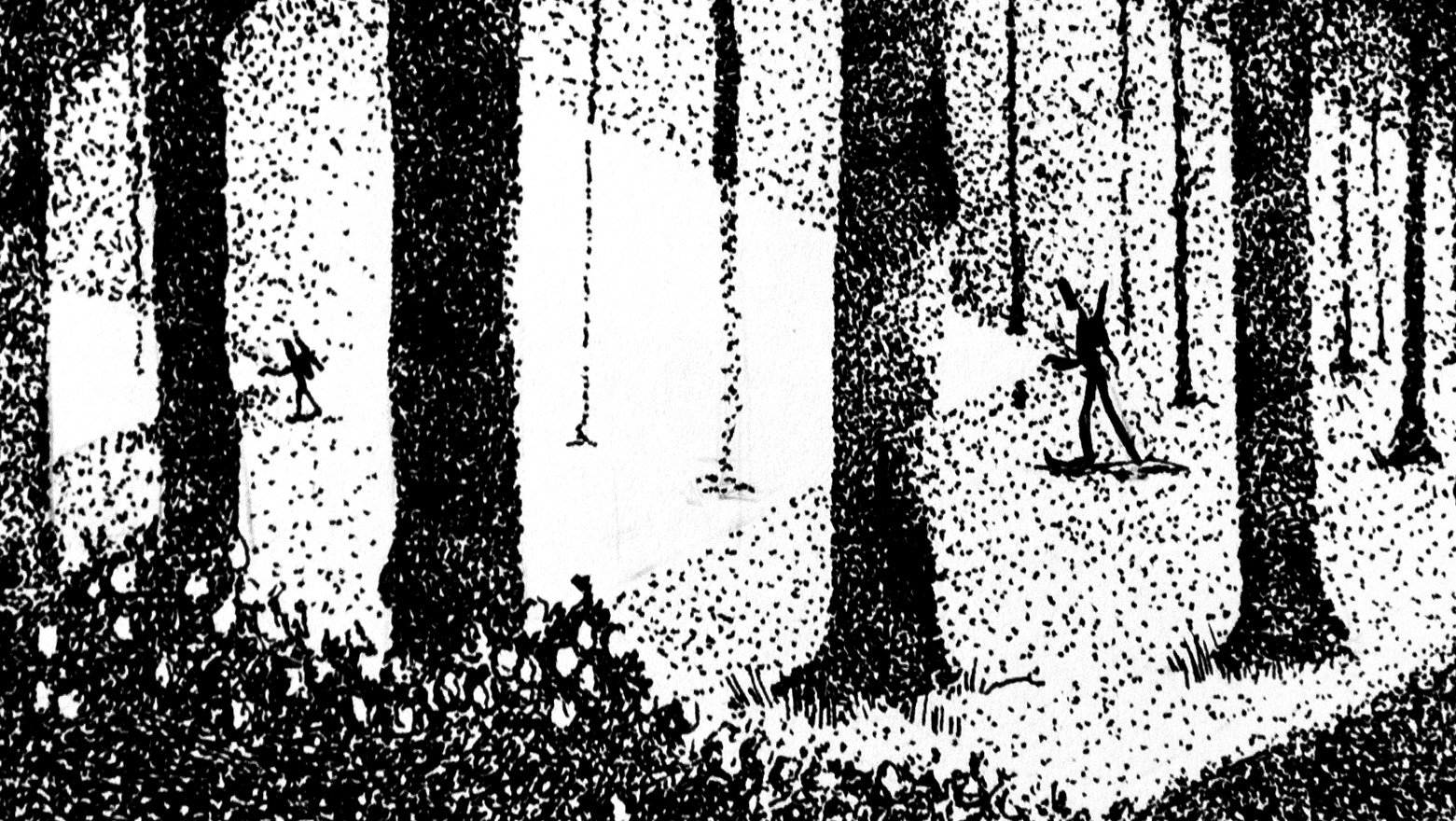The roofs of Auschwitz
Sometimes knowledge can become useful in the most unusual of circumstances.
Today is a day in september 1942, Georges has lost track of time. He is in Auschwitz, block 15, and his health is deteriorating. When he was asked about his skills by the administration of the camp, Georges said he was a painter, so he was moved with half the 45000 to Auschwitz. But when his name was called, Georges didn't show up. When he finally did raise his voice, a SS slapped him and placed him in the roofers kommando.
He doesn't remember why he didn't, he was so shocked by this place, so terrified of what Armand Schkolnic told him when he arrived, so scared of all the dead people around him, the first few days were a blur to him.
The roofers kommando is a torment, one of those kommando noone wants to be in, apart from those who just arrived. The man leading the kommando, Zep, is a sadist, he enjoys throwing the prisoners, watching them fall, agonise and die.
Georges remembers so little. His block was full, there was barely enough space. Thankfully, Georges wasn't alone in the block, he knew some 45000, particularly Rene Beaulieu, his friend. Every night, Rene and his father would make some space next to him, and Georges would do the same for them.
But Rene died of dysentery, and so did Rene's father. Georges can't remember the days, he is too tired to remember. And they have only been here for a few weeks.
Georges won’t hold much longer, he needs to change kommando, quickly. But how?
Back in 1930, Georges was 10 years old, and he was friends with Rene Beaulieu at Rosny Sous Bois. Georges' parents used to live in Argentina, they came to France for work, his father liked to paint posters announcing the films at the theaters. School was difficult for Georges, and he wanted to do the same job as his father, he wanted to paint.
He also became a young member of the pioneer movement, until he became, a few years later, a member of the communist youth, like his father. He even worked at the Humanity journal, he met everyone, from Christophe Le Meur, who worked as a nightguard, to the journalists he admired, to the journal chief, Georges Cogniot.
Like fathers and sons usually do, there were points where they didn't get along that much. George's father became bitter about his job, he and George's mother divorced, Georges went to live with his mum in the South of France.
In June 1940, as the german army was winning, everyone was fleeing south, including Georges, who was to join by foot his Renault factory, moved to Perigueux to keep on building military planes.
Before he went there, he joined his father by foot and stayed with him. Together, they worked painting portraits of officers. The french army was losing the war and running away, but the officers still had time to have their portraits painted.
When he finally got to the address he needed to go to, there was nothing, no factory, no workers, so Georges walked back to Montreuil. To cross the new demarcation line, he even managed to find a diplomatic passport, which belonged to a turkish delegate who died on the road.
After the debacle, Georges became a member of the resistance. With a group, he created an illegal print shop at a friend's place and wrote tracts against Petain's government. They couldn't agree with a government that collaborated so closely with Germany, they just couldn't.
On the 11th of November 1940, Georges took part of a sitting in front of the Montreuil town hall. The event didn't last long, the german army dispersed everyone, the threat of 2 machine guns would dissuade anyone. A couple of weeks later, everyone was arrested, including Georges, Rene and Rene's father. They became hostages.
Back to the present, Georges is alone, confused, exhausted, he doesn't have much longer to live under those circumstances.
He meets with a polish man, Ryszard Matuszewski. What is truly astonishing with Ryszard was his number, 60. It means that he was in the first train to arrive in Auschwitz in june 1940. He has been here for 2 years, he is still alive, he is an old number, proof that you can survive this place.
At first, Ryszard doesn't care much for Georges. You can only care for a limited number of people in a camp like this one, you can only share your own food with a limited number, share your bunk or carry a few on your shoulders, every person you help here means there is someone else you don't help.
But there is something about Georges. He wouldn't give up on life, despite the lack of food, of sleep, despite the beginning of dysentery. He also speaks german, he learnt it in prison, just in case, so he can speak to Ryszard from time to time.
Ryzsard asks him many questions about the situation back in France, why he was arrested. They become friends, Ryszard even brings him bread and margarine when he has some to spare.
Georges is getting better, little by little. For a Frenchman, having a polish ally, a survivor from the very first convoy, back in 1940, is great luck. One night, as Georges is particularly exhausted, Ryszard lets him know that he mentioned his name at his own painting kommando, there may be a place for him to paint inscriptions. The Auschwitz complex is constantly growing, and new signs must be built, Ryszard said he may need an assistant. So Georges' skills in painting are tested, and years and years of watching and helping his father paint posters and portraits became one of the most important thing to Georges. Thanks to his father, his mother, his uncle and Ryszard, Georges enters the sign kommando.
Yet so he could pass the test, Georges left his kommando during a lunch break, and as he comes back, Kapo Zep was waiting for him, drunk, furious. He thought that Georges had escaped, he beat up several prisoners who knew Georges, and now he hits Ryszard and breaks 2 of his teeth. He hasn’t forgotten about Georges, he tells him his turn will come the next day.
Georges is scared.. What will happen to him? Will he receive the 50 baton hit punishment? No one can survive 50 hits, not after a few days, no matter the kommando. Georges feels condemned.
That night, during the evening call, Zep does nothing to Georges. And the next day, Georges is transferred to his new kommando. Ryszard saved him, he warned his own kommando lead who had a talk with Zep’s superior. Georges is now safe.
One day, Georges is curious about the bad relationship between the polish people and the french people.
The polish were indeed resentful towards the french, even more towards the communists. When Germany invaded Poland, France and the United Kingdom declared war on Germany. The polish were hopeful, but nothing happened, there was only a declaration of war, nothing else, no troop movement, nothing apart from business as usual. The polish felt betrayed, and Germany invaded the country easily. Worse, Soviet Union invaded the second half of Poland just as easily. The reason was simple, Germany and Soviet Union agreed on the invasion as they made their infamous germano-soviet pact of non aggression. That is the reason why the SS knew the polish wouldn't be welcoming to the french communists in Auschwitz. This severely shakes George's convictions in communism, especially after Ryszard and other prisoners start telling him about the existence of the soviet camps, the gulags.
Georges’ daily life is now different, better. Every morning, he joins his new kommando, outside the complex enclosure. Sitting next to Ryszard, he works his best, and Ryszard makes sure of it. Georges also learns polish, thanks to a comrade who stole, who organised a German polish dictionnaire. The polish prisoners within his kommando appreciate his efforts, they soon make him one of their own. They also help him cure his dysentery by having him drink for a few days a decoction based on tree bark. The taste is repulsive, but the diarrhea disappears eventually, Georges just narrowly avoided the revier.
Georges is surprised he can't find any of the 45000 originally selected for the painting kommando. Where are they gone? His kapo explains that they have been sent to a different painting kommando, the ski kommando, or skifabrik. There they must paint in white skis from Germany for the next winter Wehrmacht campaign to the east. The white paint is highly toxic, no one survives for too long in this kommando.
Georges : « Isolation may be one of the worst things here, more than anywhere else, you are nothing if you are alone which is why those working in a good kommando and lucky enough to receive help from any groups must help those less fortunate. Because tomorrow, those roles may very well be reversed»
There are many different ways to resist. One way is to help, to assist. Now that Georges has been assisted by Ryszard, it is his turn to assist. Over there, a young 45000 is struggling to survive. Georges comes to him, ready to help.
Notes
Thank you very much for listening to this episode of 3100045000, the story of 2 trains of french members of the resistance. My name is Matthieu Landour and before this project, I have worked in commercials and short films, both in film and animation techniques.
This episode is about Georges Guinchan and the polish occupation of Germany and Soviet Union.
This episode was written with Frederic Guinchan, the son of Georges guinchan. I was lucky to meet with him, he told me about his father, shared stories. He also kindly reviewed my text, we ended up writing the text together. So this episode is a collaboration.
So as I explained in the previous episodes, the 45000 were scattered in different kommandos, both in Auschwitz and Birkenau, depending on theirs skills and the administration’s needs. Most specific or technical kommandos were in Auschwitz, and the force kommandos, those for the 45000 who didn’t have any skills needed in the camp, were in Birkenau, they were jobs requiring a lot of energy and related to the construction of Birkenau itself. Georges Guinchan was sent to Auschwitz, but there are actually more than one painting kommando, and you wouldn’t expect some to be more dangerous than others.
When you are assigned to a kommando, it is feasible to go to another kommando, but it can be tricky. Every name has to be replaced, and also, if you get into a new kommando, then that’s often another name that’s crossed off the list. Often, you need connections to get into another kommando, you need to get along with some people who can help you. Georges Guinchan couldn’t get into the sign painting kommando without the help of Ryszard, because that kommando was a safer place, therefore a demanded kommando.
The friendship between Ryszard and Georges was unlikely at first, yet made possible by the fact that Georges spoke many different languages. I tried to explain why some countries didn’t necessarily get along within the camp, and how the german administration used this in order to rule the camp better. They literally divided to conquer. They divided to conquer., although it could be argued that they didn’t really need to divide anybody in order to rule the camp, the camp was secured enough. Then, you could say that the administration didn’t attempt anything in that regard and left those divisions happen, as it was in their advantage.
Poland was occupied and divided, one part was occupied by the german forces, the other part by the Soviet Union forces. The polish population hoped that the french and english forces would help when they declared war on Germany, but Poland was a long way from those countries. That led to some disappointment, and in the future to a bit of resentment. That explains why the polish people were very suspicious of the french, and hostile to the german and the Soviet Union.
I would recommend highly a book by Yannick Haenel, about Jan Karski, named Jan Karski, which gives an overview of the polish situation and resistance. I must point out that the third part of the book, which is a fictional part, has been attacked by Claude Lanzmann, as being a, and I quote, “forging of history”.
This also gives me the opportunity to recommend Shoah by Claude Lanzmann, which is still a reference on the matter, and an incredible piece of history.
The pioneer mouvement is a communist group for youth, inspired by the scouts yet created in 1922 and led by the communist party. It was a step before the communist youth.
I would like to also give a few words about Armand Schkolnic, a friend of Georges Guinchan. They met, I believe, at the Rouille camp. Armand was a jewish and communist prisoner, he was working at the 18th district of Paris’ townhall for the communist deputy Armand Pillot and was deported on the 5th of june 1942, a month before Georges and the 45000. His number was 38944. I don’t know if he survived the war.
My sources for this story are the book red triangles in Auschwitz, by Claudine Cardon Hamet, the website deportes-politiques-auschwitz.fr, memoire vive and the foundation for the memory of deportation website and the fantastic website auschwitz.org .
This is it for today, thank you very much for your attention.
Aide-toi, le Ciel t’aidera, Les Hôpitaux-Neuf, 2001, 20 pages
